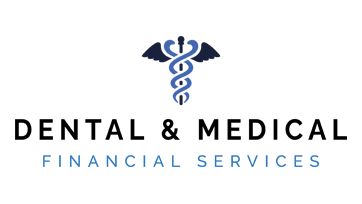
Inheritance Tax – A Few Shrewd Strategies for Reducing a Potential Bill
As high earners, doctors often find themselves faced with dealing with the complexities of Inheritance Tax (IHT). And with the recent Budget Statement highlighting the importance of financial planning, there has never been a better time to explore effective strategies for mitigating potential IHT liabilities because understanding how to manage your estate effectively can make a significant difference.
Dental & Medical Financial Services have been assisting doctors with their financial planning for over 30 years. To learn some proactive strategies that can help you reduce your potential IHT bill and preserve more of your wealth for your beneficiaries, read on.
________________________________________
This does not constitute advice and advice should be sought in all instances before acting on it. The Financial Conduct Authority does not regulate tax advice. This article was approved by Best Practice IFA Group Limited on 5 December 2024
________________________________________
Write or Review Your Will
A well-structured will is the foundation of managing IHT liability. By outlining your wishes clearly, you can ensure your assets are distributed efficiently. One important consideration is the residence nil-rate band, which allows you to pass on your main home to children or grandchildren tax-efficiently.
For the tax year 2024/25, this band stands at £175,000, which, combined with the standard nil-rate band of £325,000, could significantly increase the tax-free threshold for your estate.
If you haven’t yet made a will, or if it hasn’t been reviewed recently, it’s crucial to take action. Any change in personal circumstances, such as marriage, childbirth, or the loss of a loved one, warrants a review of your will to ensure it reflects your current circumstances and intentions.
Gift Assets During Your Lifetime
One effective way to reduce your estate’s value for IHT purposes is by gifting assets while you are still alive. Making use of the annual exemption allows you to gift up to £3,000 each tax year without incurring IHT. Additionally, small gifts of up to £250 per person are exempt, and you can make larger gifts for weddings—up to £5,000 for children, for instance.
Regular gifts from your income that do not affect your standard of living can also be considered outside your estate for IHT purposes. However, don’t forget that gifts may be counted towards your estate if they fall under the category of potentially exempt transfers (PET), which are considered for up to seven years after the gift is made.
Utilise Your Pension for Wealth Transfer
Pensions are often an overlooked aspect of IHT planning. Most types of unused pensions and other pension death benefits will be included in your estate, but that doesn’t mean tax will always be due. New rules will take effect from April 2027 so pensions can still be inherited tax-free until then. Still, there will be exceptions for dependant’s pensions paid from a defined benefit (e.g., final salary) pension scheme and eligible lump sums paid to charities.
Pensions left to anyone else will be subject to IHT where the value of the total estate is more than the available nil rate band and other allowances. Thanks to the nil rate band, everyone can pass on up to £325,000 to others before inheritance tax applies.
Place Assets in a Trust
Establishing a trust can be a powerful method for protecting your assets from IHT. When assets are placed in a trust, they are usually excluded from your estate, which could potentially lower your IHT bill. Trusts provide you with greater control over how your assets are distributed and can be tailored to meet your specific needs.
It’s important to seek legal advice when setting up a trust to ensure it is structured correctly and aligns with your financial goals. Keep in mind that once assets are in a trust, reversing the decision can be complex, so careful consideration is necessary.
________________________________________
Get Expert Guidance on IHT Planning and More
At Dental & Medical Financial Services, we understand that doctors who are typically high earners, are particularly focused on IHT savings.
Our team of experts is dedicated to providing you with comprehensive information about IHT and developing financial plans that incorporate effective estate planning. To discuss your IHT strategy further or for general financial planning assistance, do not hesitate to contact us.
Free Financial Guide: Inheritance tax planning and passing on wealth

Dental & Medical Financial Services
Dental & Medical Financial Services have over 30 years of experience in building and protecting the wealth of medical professionals.
Our expertise covers:
- Financial Planning
- Mortgages & Finance
- Wealth Protection
- Investments, SIPPS & ISAs
- NHS Pension Planning
- Business Financial Protection
- Wills, IHT & Estate Planning
- Tax Planning
- Limited Company Investments
Contact Details
IFA Principal
Darren Scott-Guinness
01403 780 771
